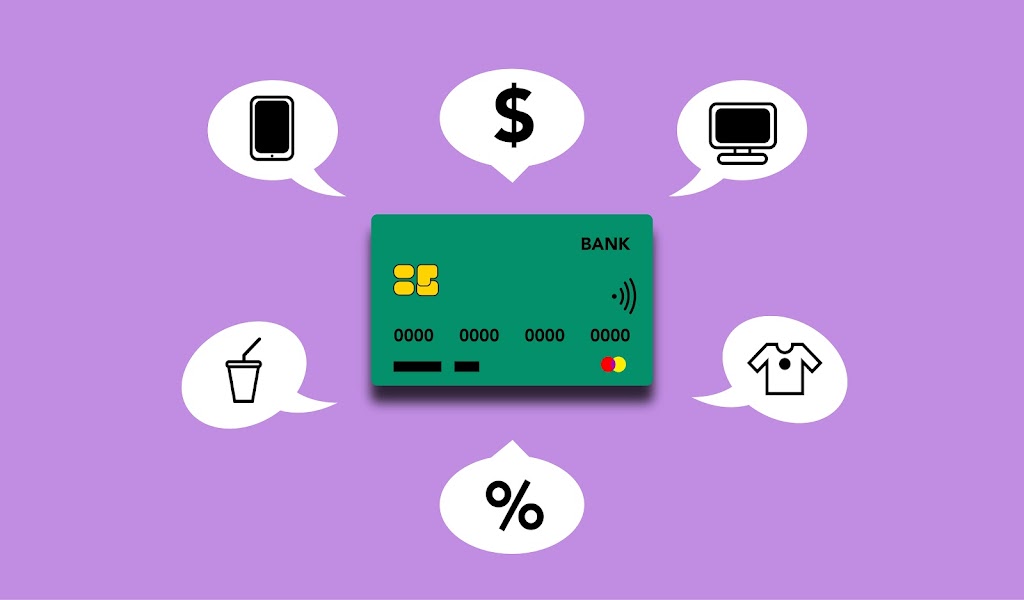Cryptocurrency, once viewed as a
novel digital asset, has grown into a formidable player in the world of
finance. Simultaneously, the real estate industry has been exploring innovative
ways to streamline transactions. This article delves into the exciting
intersection of cryptocurrency and real estate, revealing the potential
advantages, challenges, and the future landscape of property transactions in
the digital age.
The Convergence of Cryptocurrency and Real Estate
1. Understanding Crypto currency.
Cryptocurrency has emerged as a
disruptive force in the financial world, and its impact on various sectors,
including real estate, is undeniable. To appreciate its role in real estate,
let’s start with the basics:
What is
Cryptocurrency?
its core, cryptocurrency is a digital or virtual form of currency that uses
cryptography for security. Unlike traditional currencies issued by governments
(fiat currencies), cryptocurrencies are decentralized and typically operate on
a technology called blockchain.
Key Concepts:
Decentralization: Cryptocurrencies are not controlled by any central
authority, such as a government or central bank. Instead, they rely on a
distributed ledger technology like blockchain to record and verify transactions.
that records all cryptocurrency transactions across a network of computers. It
ensures transparency, security, and trust among users.
techniques to secure transactions and control the creation of new units.
Private keys, public keys, and digital signatures play a pivotal role in
ensuring the integrity of transactions.
How Does
Cryptocurrency Work?
transactions occur between digital wallets, which are software applications
that store private and public keys. Here’s a simplified overview of how it
works:
mining (Proof of Work) or staking (Proof of Stake). Miners or validators solve
complex mathematical puzzles to validate and add new transactions to the
blockchain.
initiate a transaction. This transaction is broadcast to the network, where it
awaits confirmation.
authenticity and record it in a new block on the blockchain. Once added, it
becomes a permanent part of the ledger.
private key. To access and manage your holdings, you need to safeguard your
private key, which should never be shared.
Role in Real Estate:
In
real estate, cryptocurrency is gaining traction as a method of payment and
investment. Its borderless nature, speed of transactions, and potential for
reducing traditional banking complexities make it appealing for international
real estate transactions. Additionally, blockchain technology is being used to
streamline property record-keeping, reducing fraud and improving transparency.
2. The Evolution of Real Estate
Transactions
real estate transactions have long been characterized by a complex and
time-consuming process. From property listings to negotiations, legal
paperwork, and financial transactions, the conventional approach often entails
multiple intermediaries, paperwork, and potential delays. However, the rise of
cryptocurrency promises to revolutionize this landscape by addressing several
pain points.
challenges like lengthy escrow periods, high transaction fees, and the
involvement of intermediaries such as banks, title companies, and notaries can
slow down the process. Cryptocurrency, particularly blockchain technology,
offers solutions to these issues.
reduce processing times by streamlining verification and authentication
processes. Smart contracts, self-executing agreements that automatically
enforce terms, can eliminate the need for intermediaries, reducing costs and
the potential for human errors.
international real estate transactions by bypassing currency conversion hassles
and reducing the risk of fraud. It also enhances transparency by recording
property information on an immutable ledger.
poised to witness a transformation that streamlines transactions, reduces
costs, and enhances accessibility for both domestic and international property
buyers and sellers.
Advantages of Cryptocurrency in
Real Estate
3. Speed and Efficiency
accelerates real estate transactions dramatically, transforming weeks-long
processes into mere minutes. Through blockchain technology and smart contracts,
the need for intermediaries is eliminated, reducing bureaucracy and paperwork.
This increased speed and efficiency offer a swift and seamless experience for
property buyers and sellers, ultimately streamlining the real estate market.
4. Reduced Costs
by removing intermediaries, result in reduced transaction fees. Traditional
real estate transactions involve various middlemen, such as banks and title
companies, each adding their charges. In contrast, cryptocurrency transactions
streamline the process, directly connecting buyers and sellers while automated
smart contracts handle tasks like verification. This efficiency significantly
cuts costs, making real estate investments more cost-effective and accessible
for a broader range of participants.
5. Global Accessibility
global accessibility transforms real estate investment. It transcends borders,
enabling individuals worldwide to engage in real estate transactions.
Traditional property investments often entail geographic limitations and
complex currency exchanges. Cryptocurrencies eliminate these hurdles, providing
a borderless platform for anyone with an internet connection. This
democratization of access to the real estate market expands opportunities and
diversifies investment portfolios on a global scale, ushering in a new era of
cross-border property ownership.
Cryptocurrency in Real Estate: Practical Applications
6. Property Purchases
impact on property purchases extends across various segments. Notable examples
include luxury homes, where Bitcoin has been used to acquire multimillion-dollar
estates. Commercial real estate transactions have also embraced
cryptocurrencies, with businesses using digital currencies for property
acquisitions. These real-life cases exemplify the growing acceptance of
cryptocurrency as a legitimate means of buying properties, spanning from
opulent residences to substantial commercial ventures, signaling a broader
shift in the real estate market’s dynamics.
7. Tokenization of Real Estate
technology facilitates the tokenization of real estate, revolutionizing
property ownership. Through tokenization, real estate assets are divided into
digital tokens, allowing fractional ownership. Investors can buy and trade
these tokens, gaining a share of the property’s value and rental income. This
opens up opportunities for small investors to access real estate markets that
were previously out of reach. Tokenization enhances liquidity and transparency
while reducing barriers to entry, reshaping how we perceive and invest in real
estate.
Challenges and Considerations
8. Volatility
price volatility presents a double-edged sword for real estate transactions.
While its potential for rapid value appreciation can benefit investors, it also
poses risks. Sudden price fluctuations can lead to substantial changes in
property values, affecting the feasibility of deals. To mitigate these risks,
parties involved may need to consider hedging strategies or incorporating price
stability mechanisms. Despite the challenges, cryptocurrency’s volatility
continues to shape the evolving landscape of real estate investment and finance.
9. Regulatory Hurdles
regulatory landscape for cryptocurrency in real estate is evolving, presenting
compliance challenges. Governments worldwide are considering measures to
address concerns like money laundering and fraud in real estate transactions
involving cryptocurrencies. Compliance with anti-money laundering (AML) and
know-your-customer (KYC) regulations is crucial. Navigating varying regulatory
frameworks across different jurisdictions can be complex for businesses. As the
regulatory landscape takes shape, it’s imperative for real estate professionals
to stay informed and adapt to changing compliance requirements.
10. Security Concerns
storage of cryptocurrencies is paramount due to the associated risks of digital
wallets. Cryptocurrencies are stored in digital wallets, which can be
susceptible to hacking, theft, or loss of access. A breach can result in the
irreversible loss of assets. Therefore, safeguarding private keys, using
hardware wallets, and employing robust security measures are essential. Failure
to prioritize security can lead to financial losses, underscoring the critical
role of secure storage in cryptocurrency ownership and transactions..
The Future of Cryptocurrency in
Real Estate
11. Increased Adoption
Cryptocurrency’s
adoption in real estate is poised for significant growth. As more investors and
businesses recognize its advantages in speed, cost-efficiency, and borderless
transactions, cryptocurrency usage in property markets will likely surge. This increased
adoption will lead to greater liquidity, reduced barriers to international
investment, and potentially reshape property market dynamics globally. However,
it will also require adapting to evolving regulatory frameworks to ensure a
secure and transparent real estate environment.
12. Smart Contracts and Escrow
Services
contracts revolutionize real estate transactions by automating processes and
enhancing security. They automatically execute contract terms when predefined
conditions are met, reducing the need for intermediaries and associated fees.
This automation streamlines property transfers, ensuring a transparent and
tamper-proof record of transactions on the blockchain. Escrow services,
traditionally used for security, can be replaced or enhanced by smart
contracts, further expediting and securing real estate deals while reducing
costs and potential disputes.
13. The Rise of Real Estate
Tokens
A
future where real estate assets are represented as digital tokens on blockchain
platforms holds vast potential. This innovation, known as tokenization, allows
for fractional ownership, increased liquidity, and accessibility to real estate
markets. Investors worldwide can buy and trade tokens, unlocking opportunities
previously limited by geographic constraints. This shift could democratize real
estate investment, reshape property markets, and redefine how we buy and sell
property, making real estate more accessible and flexible for everyone.
Conclusion
In
conclusion, the fusion of cryptocurrency and real estate transactions marks a
significant paradigm shift in property markets. While challenges persist, the
benefits of speed, efficiency, and global accessibility are reshaping the way
we buy, sell, and invest in real estate. As technology continues to advance and
regulatory frameworks evolve, the synergy between cryptocurrency and real
estate is poised to revolutionize the industry.
·
Can I
buy a house entirely with cryptocurrency?
o Yes,
some sellers accept cryptocurrency as payment for real estate transactions.
However, it’s essential to ensure both parties are comfortable with the
arrangement, and legal considerations are met.
· What
cryptocurrencies are commonly used in real estate transactions?
o Bitcoin
(BTC) and Ethereum (ETH) are the most commonly used cryptocurrencies for real
estate transactions due to their widespread acceptance and liquidity.
·
How are property
titles and deeds handled in cryptocurrency transactions
- Property titles and deeds can be recorded on
blockchain platforms, ensuring transparency and security in
cryptocurrency-based real estate transactions.
- Are there tax implications when using
cryptocurrency for real estate?
- Yes, there are tax considerations in cryptocurrency
real estate transactions. It’s advisable to consult with a tax
professional to understand and navigate these implications.
cryptocurrency for real estate?
- Yes, there are tax considerations in cryptocurrency
real estate transactions. It’s advisable to consult with a tax
professional to understand and navigate these implications.
- What security measures should I take when
using cryptocurrency for real estate
- Use reputable cryptocurrency wallets, enable
two-factor authentication, and consider the use of hardware wallets for
enhanced security when dealing with cryptocurrency in real estate
transactions.
using cryptocurrency for real estate
- Use reputable cryptocurrency wallets, enable
two-factor authentication, and consider the use of hardware wallets for
enhanced security when dealing with cryptocurrency in real estate
transactions.








